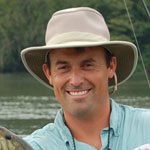
By January, every duck still alive has heard and seen just about every trick in a hunter’s toolbox, but that doesn’t mean you can’t pull a flock of ducks into the decoys in January. Hunters just need to be tactical and smart with respect to calling and decoys.
On Sept. 1 in Canada, ducks quickly learn what it means when a shotgun load whizzes by their heads and when hundreds of their pals don’t make it back from the grocery store. The survivors know how to make a living and avoid dangerous situations, beginning on the brooding grounds in Canada through their migration to South Carolina’s rich wintering grounds.
While ducks learn what to avoid, hunters must hone their skills and hunt smarter to get flocks to fly close enough for a shot. T.J. Hallman of the Territories Saluda River Preserve adjusts his call volume and frequency to keep the birds coming in.
“We find that soft-calling and very limited calling will help bring in birds when the pressure is on,” Hallman said. “Late-season birds are looking for a place to rest, especially in the frozen/flowing water scenario on rivers. The birds want to be where you are, and excessive calling will deter them from coming in.”
In addition to soft-calling, Hallman creates natural water movement inside his decoy spread.
“Ducks are rarely sitting still on the water. If you create lots of water movement, it really makes a difference,” he said.
Del Avins, manager of River Oaks Farms in Rimini, will change his tactics late in the the season when the birds get skeptical.
“I like to use a lot of decoys, because the birds feel safer in larger numbers,” Avins said.
As the season progresses, ducks have a tendency to raft up on open waters, swamps and even in duck impoundments. With all of the hunting pressure continuing to build, there are fewer places ducks can find protection. The appearance of large flocks on open waters can help coax weary birds into range.




Be the first to comment